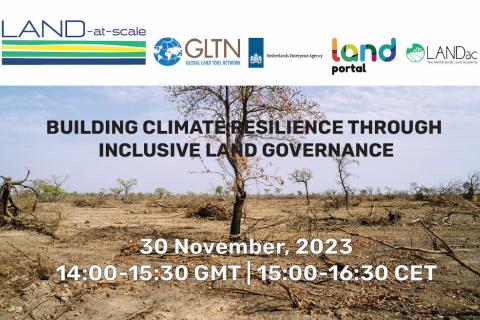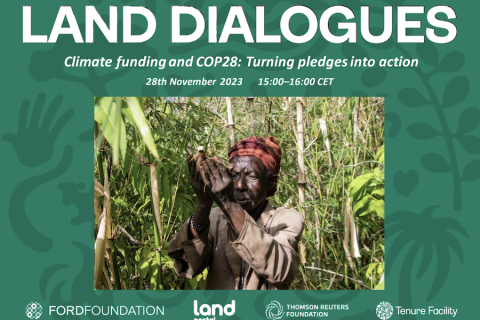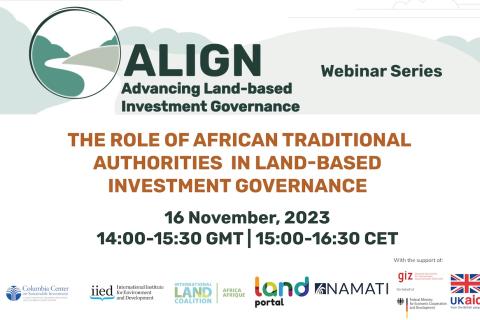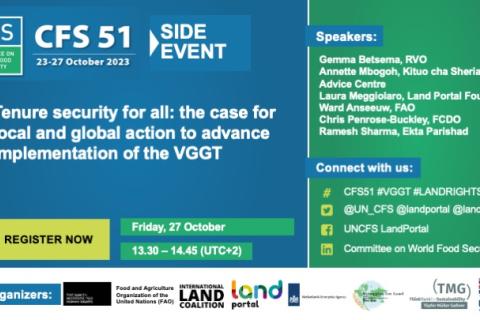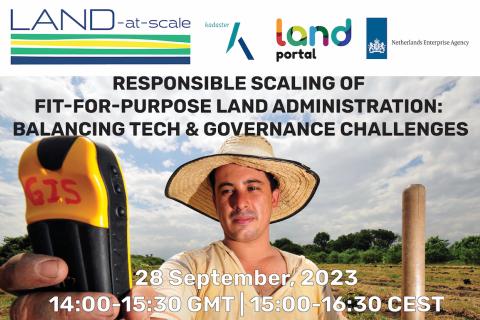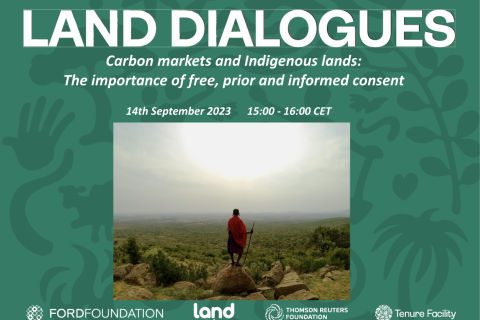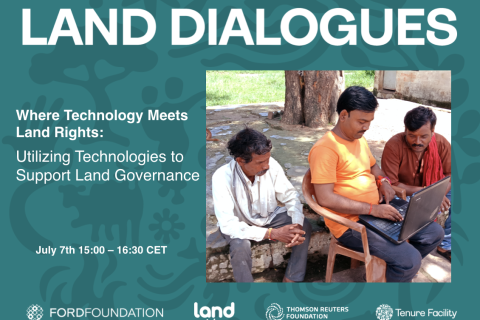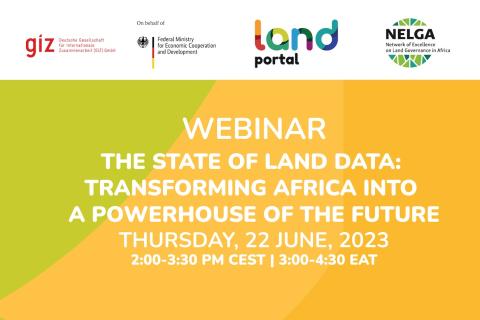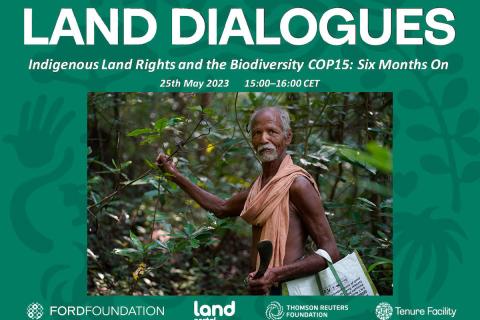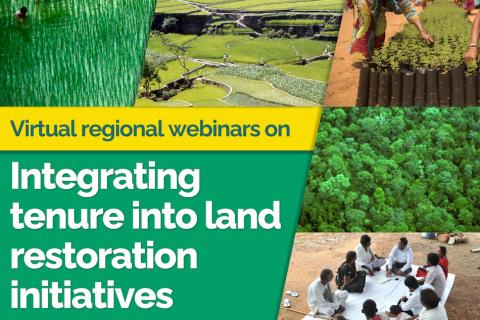Building Climate Resilience through Inclusive Land Governance
On the opening day of #COP28, we hosted a thought-provoking webinar that delved into the intricate relationship between land governance and climate resilience, a critical area of immense importance in the context of global climate challenges and sustainable land use practices. This event aimed to unpack the crucial role of inclusive land governance in building climate resilience.
Climate Funding and COP28 : Turning Pledges into Action
The UN’s past two global climate summits have been big on promises for Indigenous Peoples. At COP26 in 2021 governments and private philanthropies pledged nearly $2 billion for Indigenous Peoples and local communities to fight deforestation. Last year’s COP27 led to the creation of a new “loss and damage” fund to help vulnerable communities respond to climate disasters.
Securing tenure : Enhancing Disaster Management and Adaptation
Climate-change induced disasters and communities’ responses to protect themselves and design solutions have become a top priority on the climate agenda. At the center of mitigation and adaptation discussions have been urban populations, particularly in informal settlements. At the same time, the rural poor with limited or no secure access to land tend to be overlooked.
The role of African traditional authorities in land-based investment governance
By examining the landscapes of multiple African countries, we will unearth the myriad experiences of traditional leaders, emphasizing the variances in their legislative authority and the weight of their word. By drawing upon actual case studies, the discourse will underscore potential friction areas between traditional leaders, governmental entities, and local populace, especially when the spotlight turns to the management of land based investments within ancestral domains.
Tenure security for all: the case for local and global action to advance implementation of the VGGT
This event will bring together a wide range of CFS actors to present the case for more coordinated global action to advance tenure security. It will present proposals for a multistakeholder global campaign and draft Framework for Action. It will show how a focus on human rights compliance in land governance through systematic monitoring and policy dialogue can promote VGGT implementation and increase accountability.
Responsible Scaling of Fit-for-Purpose Land Administration: Balancing Tech & Governance Challenges
Join us for a thought-provoking webinar that explores the challenges and future directions to scale Fit-For-Purpose Land Administration (FFPLA) based on on-the-ground experiences. FFPLA approaches are broadly recognized and applauded for being more affordable, faster and flexible (in terms of spatial identification) than conventional land administration methods.
Carbon markets and Indigenous lands: The importance of free, prior and informed consent
While talk of carbon markets has been prominent of late, offsetting using forest carbon has long been controversial. Carbon markets are trading systems through which countries, businesses, individuals or other entities buy or sell units of greenhouse gas emissions. A newly launched report by the Rainforest Foundation UK, looks at both sides of the coin.
Where Technology Meets Land Rights: Utilizing Technologies to Support Land Governance
This webinar discussed the implications of technologies for land rights, including the potential benefits and drawbacks. The webinar considered whether technology and data sharing a viable and practical Indigenous communities to defend their land rights.
The State of Land Data: Transforming Africa Into a Powerhouse of the Future
This webinar aimed to build the capacity of researchers and practitioners across Africa to better understand sustainable approaches to land data governance. The webinar highlighted the importance of good land data governance for improving property rights and enabling more efficient government services.
Mainstreaming land rights of the rural poor in the climate discourse: Side event
The aim of this event is increasing public understanding of the links between climate change, disasters, and land tenure rights, and bringing land tenure issues in the climate change discourse, listening particularly to the voices of civil society and youth. The discussion is also expected to bring forth some ideas for action both for the new GFAR Collective Action on land tenure and climate change, and for policy makers.
Indigenous Land Rights and the Biodiversity COP15: Six Months On
After two weeks of tense talks, the recent UN Biodiversity Conference COP15 ended with a landmark agreement to guide global action on nature through to 2030. The Kunming-Montreal Global Biodiversity Framework (GBF), includes concrete measures to halt and reverse nature loss, including putting 30% of the planet and 30% of degraded ecosystems under protection by 2030.
Regional webinars on integrating land tenure into restoration initiatives
These webinars aim to raise awareness on the value of tenure security and its contribution to biodiversity conservation, sustainable land management, ecosystem restoration, and climate change mitigation and adaptation while improving food security and local livelihoods.

